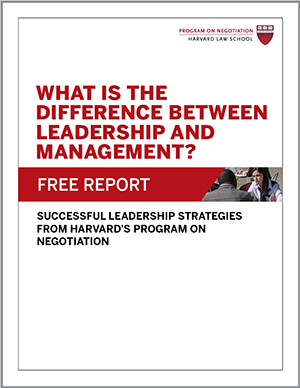
Amid tightening global competition and demand for new technologies, automakers are feeling the urge to merge. In late 2018, Fiat Chrysler chairman John Elkann, an American-Italian running his family’s business, stepped up the search for a merger partner and reached out to Renault, among other companies.
For organizational leadership at Renault and Fiat Chrysler, the benefits of merging appeared obvious. The combined company would overtake General Motors to become the world’s third-largest auto manufacturer by volume, after Toyota and Volkswagen. Facing a downturn in the European auto market, Renault would gain access to new international markets. Both sides would save billions through joint purchases and shared development costs.
Yet despite such apparent synergies, the negotiations quickly flamed out. What went wrong? The parties failed to adequately account for the interests and concerns of other parties with a significant stake in the deal: the French government and Japanese automaker Nissan. The common tendency to focus myopically on the parties at the table is a common negotiation mistake by organizational leadership. Those aiming for responsible leadership need to take a broader view of their organization’s negotiations.
Rocky Road in Organizational Leadership
In 1999, Renault bailed out a struggling Nissan to form a successful strategic alliance, but cracks formed within its global leadership team. Nissan CEO Hiroto Saikawa has complained that the alliance’s ownership structure is lopsided in favor of Renault. And Nissan executives reportedly shared accusations of financial wrongdoing by Renault chief Carlos Ghosn with Japanese prosecutors, which led to his arrest, the Wall Street Journal reports.
Ghosn’s replacement at Renault, Jean-Dominique Senard, was receptive when Elkann suggested in May 2019 that they seriously consider merging Fiat Chrysler and Renault. The two men eventually agreed to try to get Renault’s board of directors to approve a deal at a shareholder meeting the next month.
Senard was careful to inform French president Emmanuel Macron about Fiat Chrysler’s overture toward Renault. The French government owns a 15% stake in Renault and would want to see the interests of French citizens represented at the bargaining table, such as job protections.
But Renault didn’t immediately tell Nissan about its talks with Fiat Chrysler. Unlike Renault, Fiat Chrysler competes with Nissan in the U.S. market. Renault’s organizational leadership worried their Japanese counterparts might try to sabotage talks with press leaks, according to the Times.
An Unacceptable Delay
On May 26, Fiat Chrysler sent Renault a formal proposal for a fifty-fifty merger. Only then did Renault’s Senard email Hiroto Saikawa, Nissan’s CEO, to fill him in. Believing Nissan had been treated like an outsider in the merger, Nissan executives felt blindsided. Yet Nissan shared its concerns so subtly that they were “essentially lost in translation,” according to the Journal.
On June 3, Nissan CEO Saikawa said the proposed deal would necessitate a “fundamental review” of his company’s alliance with Renault, a statement that alarmed the French government. Two days later, the Renault board, which included a French government representative and two Nissan representatives, convened to negotiate the deal. Fiat Chrysler offered France representation on the combined company’s board and a promise to base its European headquarters in France.
After several hours, 14 members of the 20-person board backed the deal, the Times reports, but Nissan’s representatives abstained from voting. Taking this as a sign of future opposition, the French government’s representative announced that the French finance minister was flying to Tokyo to discuss the merger with the Japanese government and needed a five-day delay on a final vote.
For Fiat Chrysler, the delay was a sign that the French government would be a meddlesome partner, a situation the Italian-American company could not abide, according to the Times. After conferring with Senard and his board, Fiat Chrysler chair Elkann emailed a letter to Senard: The deal was off.
Expanding the Scope
In the press, the French government was roundly criticized for trying to micromanage the deal. Yet it’s also notable that France appeared to be the only party attuned to Nissan’s objections to a Renault–Fiat Chrysler tie-up. “The bride [Renault] was already in a committed relationship, which a watchful parent wanted to preserve,” the Journal wrote.
The failed talks highlight leadership essentials, particularly the importance in organizational leadership of looking beyond the parties at the bargaining table. In addition to considering the organization’s BATNA, or best alternative to a negotiated agreement, strategic leadership requires consideration of how an agreement could affect other interested parties—including existing clients, customers, and partners; government entities; and the public at large. Rather than viewing them as deal blockers, think about what they might bring to the table.
What other principles of organizational leadership have you learned from in your own work?





